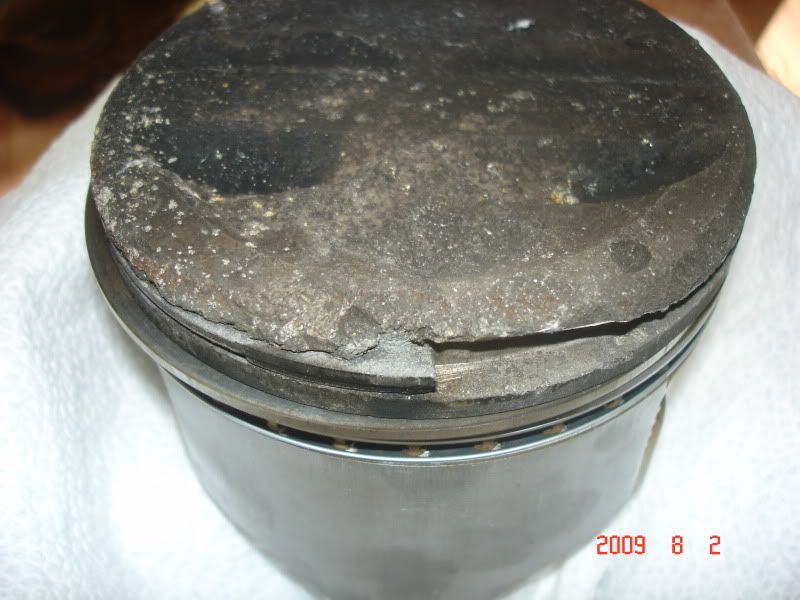Hello,
What, tulipped valves?? How? How low for how long?
Recently got new 4-blade prop to test due to sluggish low end performance. With original 3-blade prop engine would turn 4600rpm on the 4200-4600 recomended range.
New prop went up 1" pitch and engine lost 700 rpms, It now runs WOT @ 3900, maybe 4000. Obviously that is outside the minimun recomended. But is it that bad?
It now runs WOT @ 3900, maybe 4000. Obviously that is outside the minimun recomended. But is it that bad?
Today I did a compression test and found 124, 110, 90, 110, 110, 112, 110, 0, #3@90 went to 110 after 3 squirts of oil. #8@0 just fluttered the needle a little.
#3@90 went to 110 after 3 squirts of oil. #8@0 just fluttered the needle a little.
Both times, before and after the switch, the engine has always ran good, no backfires or stutters. Before would top out at 4600 @ 52mph, after 3900 @ 56mph.
Now I'm REALLY wondering if #8 @ 0psi was really the problem before the prop switch or if testing the new prop at 3900 is what caused the 0psi?
What, tulipped valves?? How? How low for how long?
Recently got new 4-blade prop to test due to sluggish low end performance. With original 3-blade prop engine would turn 4600rpm on the 4200-4600 recomended range.
New prop went up 1" pitch and engine lost 700 rpms,
Today I did a compression test and found 124, 110, 90, 110, 110, 112, 110, 0,
Both times, before and after the switch, the engine has always ran good, no backfires or stutters. Before would top out at 4600 @ 52mph, after 3900 @ 56mph.
Now I'm REALLY wondering if #8 @ 0psi was really the problem before the prop switch or if testing the new prop at 3900 is what caused the 0psi?




















